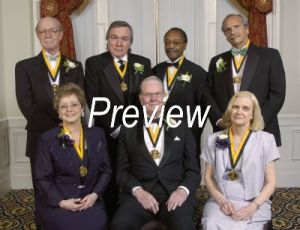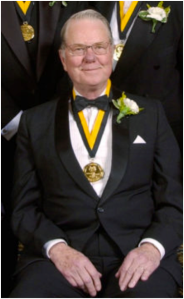
Louis W. Hodges was the philosopher that I have chosen for this paper. Hodges was born in Mississippi to John C. and Lorene Hodges; he also had a younger sister, May John Hodges. Hodges went to college and got a Bachelors Degree from Duke Divinity School in 1957. He also received a doctorate from Duke University in 1960, which was in Christian thought and Christian Ethics. In 1960, Hodges became a professor at Washington and Lee University in Lexington, VA, until his retirement in 2003.
In 1974, Hodges was announced the founder of Washington and Lee University’s Society and Professional Program in Professional Ethics. Not only that, Hodges also “became the first holder of the Knight Chair in journalism ethics in 1966” (University of Minnesota, 2009). “The John S. and James L. Knight Foundation created this distinguished professorship with an emphasis on journalism ethics in 1997 as a part of the Knight Chair in Journalism initiative. The Knight Foundation was established in 1950 and makes national grants in journalism, education and the field of arts and culture” (Washington and Lee University, 2015). The mission statement from the Knight Foundation is that it “supports transformational ideas that promote quality journalism, advance media innovation, engage communities and foster the arts. The foundation believes that democracy thrives when people and communities are informed and engaged” (The Knight Foundation, 2015). Due to his accomplishments within the foundation and his years of teaching at Washington and Lee University, Hodges was inducted into the Virginia Communications Hall of Fame around the time of his retirement from Washington and Lee University.
Hodges wrote many books, journals, and articles, but one in particular is intriguing. It’s titles The Journalist and Professionalism. Within his journal, Hodges “argues that journalists must begin taking themselves seriously as members of a profession if journalism is to gain the respect it needs to function effectively in society. Journalism, argues the author, may not possess all the classical attributes of professionalism, but it does possess the most important ones” (Taylor and Francis Online, 2005). Within this article, he talked about that journalists must always hold onto a professional integrity, not only for the audience reading the articles, but the journalist as well. This standpoint is important due to the fact that some journalists try to not give the whole truth, or tries to twist the truth around just to get a good story out to the media audiences. Hodges point is to have journalists look at journalism through the audiences’ eyes instead of their journalistic eyes. This would give the journalist the experience and a rewarding sense of accomplishment of being a true journalist.
There were various articles written about Hodges’ philosophy, a recent article is a good representation of his philosophy on privacy. According to Cobbs, “Hodges claims that privacy is necessary for individuals to develop a sense of self and also to protect individuals from the power of the state” (Cobbs, 2012). Within today’s media outlets everything is online and there is easy access to peoples’ personal profiles on all sorts of websites. They have the right to make their personal profiles private and unavailable for the public viewing. The terms and conditions are only applicable to the prime website for an amount of time until new versions appear and then update. “As new technologies are developed, privacy concerns will also become more widespread. Users will start to distrust companies that breach their privacy agreements and possibly use other services instead. Companies should learn from Google’s mistake and reach a balance between protecting users’ privacy and earning revenue from advertisers (Cobbs, 2012).
For more information about Louis W. Hodges, either personal or his ethical point of view, you can email him at HodgesL@wlu.edu.
References
Cobb, M. (2012). Professional Problems and Ethics. Privacy Ethics in the Digital Age. Web. https://margaretcobb.wordpress.com/2012/10/07/privacy-ethics-in-the-digital-age/
Taylor and Francis Online (2005). Journal of Mass Media Ethics: Exploring Questions of Media Morality. Web. http://www.tandfonline.com/doi/abs/10.1080/08900528609358264#.VN6jk7627zI
The Knight Foundation. (2015). About the Foundation. Web. http://50.56.126.145/search/?q=hodges
University of Minnesota. (2009). SILHA Center for the Study of Media Ethics and Law. Journalism Ethicist Louis W. Hodges Will Retire in 2003. Web. http://www.silha.umn.edu/news/spring2002.php?entry=203462
Washington and Lee University. (2015). About. Web. http://www.wlu.edu
